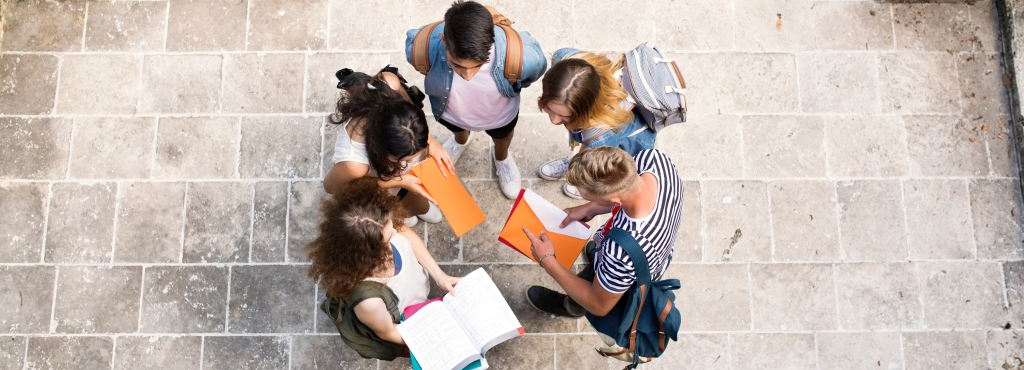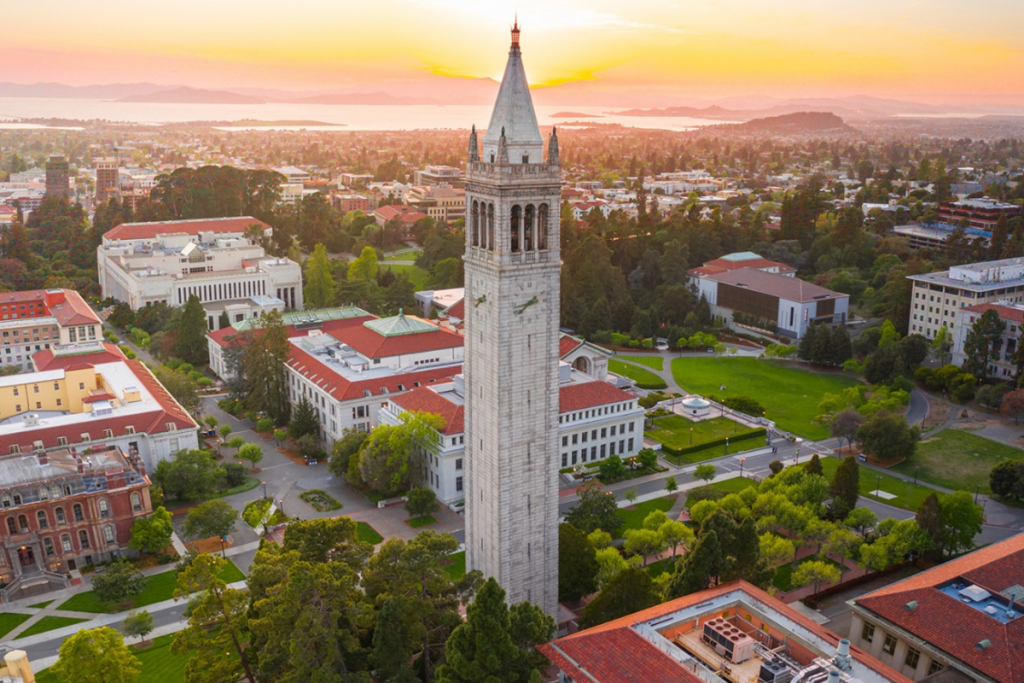From religion and folklore to film and even medicine, college departments love to celebrate the supernatural and postulate on the paranormal. Whether you’re an occult-loving student building your college list, or you just want to get an idea of some creepy courses to add to your schedule, check out our list of otherworldly offerings below.
Harvard University
Whether you prefer your spooky classes in French or English, Harvard University offers a few options for students who want a good scare. Take time to dive through their course catalog to find more spooky seminars offered by different departments. Here’s a sampling of course offerings.
Be it zombies or human-animal hybrids, there’s plenty to study in this Romance Languages & Lit course! Using the literature of the Creole world, students explore the inhuman from the preternatural to the aberrant. Ghosts, zombies, human-animal hybrids, and human zoo “freaks” are just some of the subjects covered in this course, which is conducted in French.
Whether you believe in monsters or not, there is no denying their impact on 21st century popular culture. This English course explores monsters through 19th century Gothic fiction, such as Mary Shelley’s “Frankenstein,” early horror films, and the modern television show, “Severance,” in an effort to understand why the monstrous continues to fascinate us.
Dive into the eerie world of ghosts, demons, mysterious fox spirits, and more to uncover how the supernatural has weaved its way through China’s literary history. In this East Asian Languages & Civilization class, students explore ancient texts and chilling adaptations in film and culture, while unearthing dark secrets of gender, death, and the unknown.
Tulane University
Tulane University boasts some terrifying course offerings. From torture to tunes, their departments love to dive into the dark and mysterious sides of history.
Medieval meets Halloween in this creepy course. From ancient methods of inflicting pain to modern psychological horrors, it delves deep into the murky waters of controversial practices. Torture may be banned in the U.S., but that doesn’t stop Tulane first-year students from studying its horrible history.
Whether it’s seeking connection with the supernatural or bridging past, present, and future, music often paves the way for religious ritual. Students discover how echoing chants of Judaism, Christianity, and Islam and the captivating rhythms of voodoo and Santeria bridge the gap between the mortal and the supernatural.
University of Pennsylvania
Students at the University of Pennsylvania have a range of otherworldly options to choose from. Whether you’re fascinated with gods and demons or ghosts and monsters, you’ll never get bored with Penn’s course offerings.
Through the lenses of religion, art, anthropology, and literature, this course covers a plethora of supernatural beings in murals, films, manuscripts, and even comic books. Students study everything from the age-old practices of Buddhist, Christian, and Hindu traditions to the vibrant tales of Afro-Caribbean sources to unearth the captivating stories and theories that have shaped humanity’s understanding of the uncanny and the supernatural.
This course explores the intersection of psychoanalysis and cinema, focusing on the themes of the Uncanny and Horror. Drawing on foundational theories from Freud, Kristeva, and Leader, students will examine how horror films reflect and engage with psychoanalytic concepts such as abjection, hysteria, paranoia, and Oedipal desire. Through analysis of films ranging from “The Cabinet of Dr. Caligari” to “Midsommar,” the class investigates why audiences are drawn to fear, madness, and terror, and how these elements reveal deeper psychological truths.
Dartmouth College
Dartmouth College has plenty of occult offerings to choose from. Explore the undead or learn about witchcraft in every context from Native American history to biomedicine — regardless of your interests, they probably have a supernatural seminar for you!
It’s no surprise the U.S. South has some haunted history. Students in this Dartmouth class delve deep into the region’s role as America’s purgatory. Grave-rising specters, undead heroes, forgotten crimes, and the zombies and vampires in modern media — you name it, this class covers it!
Much can be said about the spellbinding tales from China, Japan, India, and Southeast Asia, where magic and supernatural forces reign. Students in this Dartmouth course should prepare to be enchanted by Asia’s captivating supernatural narratives as they unravel the artistic mysteries, delve into the psyche, and uncover the dark political undercurrents in regional folklore and stories!
Rice University
If you enjoy deep dives into the world of the supernatural and the occult, you have several course options at Rice University. Here are a few of our favorites.
This discussion-based music course investigates how monsters and bards are portrayed across artistic media — from medieval texts to modern games — and how music shapes their cultural significance. By tracing these figures through history, students explore themes such as violence, otherness, macabre and gothic aesthetics, orientalism, colonialism, romantic love, chivalry, and spirituality.
This course explores the historical relationship between religious belief and the development of human psychology in the western tradition, using demonology as a central lens. Students examine how representations of demons — from physical entities to symbols of mental illness — have evolved across texts from antiquity to modern psychiatry.
This course examines how spectral and monstrous figures — such as ghosts and zombies — function as cultural symbols across global societies. Through a dialogue between anthropology, literature, media, and culture, students explore how these entities represent both life and death. Coursework includes novels, ethnographic and theoretical texts, and personal reflections on students’ own social worlds.
University of Arizona
From horror films to haunted histories, the University of Arizona is another school with a wide array of wicked offerings. Check out some of the more unique options below!
This course examines horror cinema as a rich site for exploring cultural identity as it connects to gender, race, and ethnicity. Often dismissed for its shock value and violence, horror is revealed here as a genre deeply engaged with social and political questions. The course highlights horror’s enduring popularity and its power to reflect and challenge cultural norms across diverse societies.
Magic and demonology and witch hunts, oh my! Students lucky enough to enroll in this course trace the intriguing journey of witchcraft through the 19th-century occult resurgence, Wicca’s evolution, and modern-day witchcraft beliefs to go beyond the common association of witchcraft with women and delve into experiences across genders. As a bonus, the syllabus also incorporates legal, medical, and anthropological perspectives, unraveling age-old worldviews that might seem alien today.
Astrology, UFOs, ESP, and time travel aren’t covered in a typical syllabus, but then again, this isn’t your typical course. Instead, students dive into beliefs that challenge conventional wisdom, from ghosts to prophetic dreams, and learn to discern between rational and irrational claims.
Frankenstein’s monster got a bad rep, but why? Students in this course raise key questions about human identity, human values, and the cultural boundaries we construct to cordon off the horrific, the weird, the frightening, the monstrous, or the non-human. They examine the monster-figure in literature and film as a key indicator of cultural history: the symbolic carrier of cultural values, problems, and ideological tensions.
University of Colorado Boulder
The University of Colorado Boulder dives into death and examines the supernatural in a variety of cultures. Whether your fascination lies in the tropical Caribbean, the chilly Russian tundra, or colonial Haiti, they probably offer a course for you!
Mortuary practices provide an eerie insight into human history and culture in both the modern and ancient world. This creepy course considers the universal human phenomenon of death and how across history and geography, peoplehave interacted with mortality in extraordinarily different ways.
The bizarre, absurd, grotesque, surreal, supernatural, and fantastic are common themes in 19thand 20th century Russian literature. Students in this course discuss Romanticism, Freud and Jung’s interpretations of jokes and dreams, and works by everyone from Pushkin to Dostoevsky within the contexts of Russian folklore.
Zombies of the Caribbean? We smell the next major film franchise! Students in this course explore how the mass-media icon of the zombie became a macabre representation of deep-rooted anxieties in the modern world. The syllabus covers the eerie evolution of zombies throughout the ages, including the emergence of the zombie figure in the Caribbean and its evolution from colonial Haiti to present-day popular culture.
Johns Hopkins University
Zombies, monsters, and ghosts just scratch the surface of what Johns Hopkins University has to offer! Check out some of their creepy course offerings below.
This seminar explores the evolution of zombies in literature and cinema, from their historical origins in ethnographic fictions tied to racialized slavery to their present-day appearances in Hollywood blockbusters. Students analyze the implications of this terrifying transformation, from individual victims to horrifying hordes.
Everyone loves a good ghost story, and German authors from the 18th century to the present are no exception! Students in this course explore why ghost stories endure in an age of science and reason and consider whether the occult represents the darker side of science.
Students in this course investigate the power dynamics behind witchcraft accusations in 17th century North America. The course culminates in a final project focused on an early American witchcraft trial.
Want to find courses like these on your college campus? An IvyWise Academic Advisor can help you identify unconventional courses that fit into your academic goals, whether they’re related to your major or an elective that allows you to explore an area of interest. Learn how we can help you make the most of your college experience.
Contact Us
Editors note: This article was originally published on October 31, 2023 and has been updated to reflect current course offerings.




